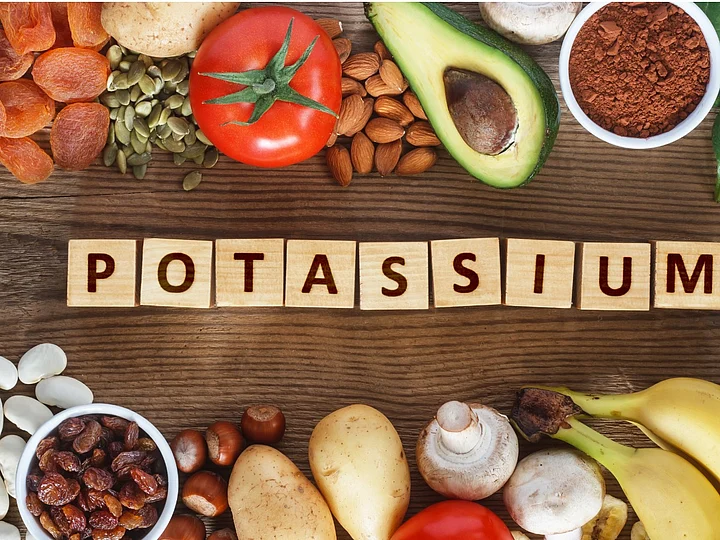Potassium is an important nutrient and electrolyte for the body. When dissolved in water, it produces positively-charged ions which are required for the major processes inside the body.
According to PubMed Central, potassium-rich diet can help lower blood pressure, prevent kidney stones, water retention, stroke, and osteoporosis. Other additional functions of this third most abundant mineral in the body include:
Helps maintain proper fluid balance.
Helps regulate nerve impulses which are responsible for muscle contractions, heartbeat, and other reflexes.
Lack of potassium may cause irregular heartbeat and weak muscles.
People consider banana as the major source of potassium but there are a variety of other fruits and vegetables that might have even higher percentage of the mineral. Let's have a quick look at these food items.
Avocados
The green, creamy, and rich avocados have become the popular choice of people and they deserve all the attention due to their high healthy fat content, fiber, folates, and potassium.
According to the US National Institutes of Health (NIH), one avocado of about 200 gram contains around 690 mg of potassium, that is 20% of the Required Daily Intake (RDI). Doctors often advise people to eat avocados when they require high potassium and low sodium. It also helps maintain optimal blood pressure.
Sweet Potatoes
Sweet potatoes have been replaced with potatoes in few homes due to its various health benefits, and high potassium content. A medium-sized sweet potato contains 541 mg of potassium which is 12% of the daily required intake.
Other nutrients to be found in sweet potatoes includes vitamin A, C, manganese, and B6. They are low in fat, high in protein, complex carbs, and fiber.
Spinach
The dark green leafy vegetable spinach has been your mother's favourite green vegetable when it comes to fulfilling the nutrition needs of their child. One cup of spinach contains 540 mg of potassium which accounts for 12% of the RDI.
The other nutrients to be found include vitamin A, vitamin K, magnesium, and folate. It is advisable to consume raw spinach rather than the frozen ones because smaller amounts of fresh spinach can provide the same potassium as a large amount of the frozen one.
Coconut Water
According to Healthline, coconut water is a super hydrating, fat-free, and cholesterol-free drink which has more potassium when compared to four bananas and provides more nutrients than any sports drink.
According to Nutritiondata.self, one cup of coconut water contains 600 mg of potassium which is nearly 13% of the RDI and it also contains magnesium, calcium, sodium, and manganese. Fresh coconut water can help draw water into the cells, replenish the body and make up for the lost glycogen.
Watermelon
There is no doubt that watermelon is the most hydrating fruit with the highest water content but when it comes to potassium, banana comes first to our mind. A lesser known fact: Watermelon has more potassium content than banana.
Just two wedges or say 1/8th part of a watermelon contains 640 mg of potassium which is 14% of the RDI and the same amount of the fruit contains 172 calories, 3.4 g of protein, 44 g of carbs and 0.8 gram of fat.
White Beans
White kidney beans or navy beans can be considered as white beans. One cup of any of these beans contains 839 mg of potassium which is twice the potassium content of a banana.
According to the US NIH, it is 18% of the RDI of potassium, 28 to 61% of vitamin Bs. They are also a rich of source of plant-based iron, fiber, and protein and can be a part of your salads, stews, or curries.
Black Beans
Black beans are a great source of potassium though they have lower potassium content than white beans. One cup of cooked black beans contains 611 mg of potassium which is 13% of the RDI.
Something to be careful about is the content of phytates in black beans which inhibits the absorption of minerals in the body. Therefore, the best way to consume them is to cook them after they are soaked in water.
Pomegranate
Pomegranate is a rich, multi-seed fruit in the size of orange which varies from purple to red in colour. One cup of pomegranate can provide 666 mg of potassium which is 14% of the RDI and also rich in vitamin C, K, protein, and folates.
However, it contains more calories than most fruits and required amount of natural sugars. The high-fiber content can make you feel full for longer and aid digestion as well.
Potatoes
Potato is a starchy, root vegetable consumed as a staple food in several countries and it is quite diverse when it comes to its use in various dishes. One potato contains 515 mg to 718 mg of potassium which is 11% to 16% of the RDI.
Moreover, the potassium content depends on the soil the potatoes are grown in since there are a variety of potatoes and potatoes are the main source of potassium in diets of various countries.
Beetroot
Beetroot is the most colourful vegetable of all and the deep purple veggie can be consumed boiled, in salads or soups. A medium-sized beetroot can provide you with 518 mg of potassium which is 11% of the RDI.
You can consume beetroot to increase your potassium level and manage blood pressure. Moreover, one cup of beetroot can provide 34% of the RDI of folates and it is also rich in nitrates which when converted into nitrites improve the overall functioning of the blood vessels.

